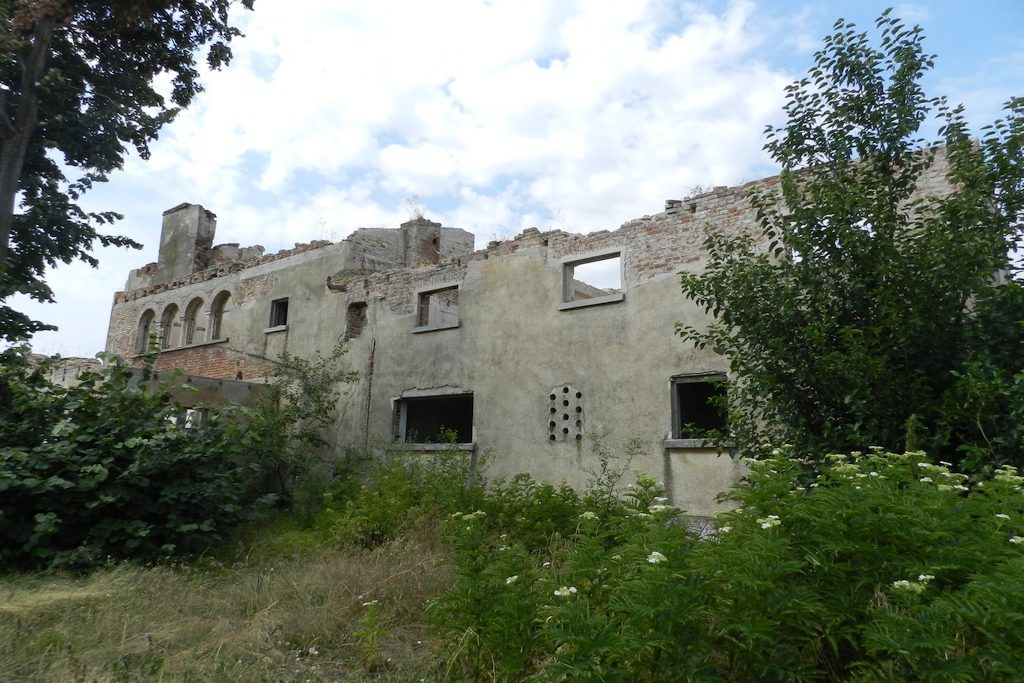

The manor house was built in the late nineteenth century by the nobleman Marian Ion, minister it the goverment Antonescu. The building fully reflects Romanian traditional style. The manor house was built on the highest hill on the banks of the river Olt, so that the the nobleman could see with binoculars
his other building, located in Piatra Olt, at few kilometers away. It had over 15 rooms and was living proof that Oltenia was a rich region with significant profits from agriculture.
After World War II, the mansion was taken improperly by the Communists and turned into the headquarters of the Agricultural Production Cooperative (CAP).
After the Revolution was also an agricultural company headquarters, after were abolished the former CAPs, and then some time after ’89, grandchildren of former landowners, which live in Switzerland came and requested the restitution of the mansion.
There was also a process which they won, and so they became owners of the building and of 7.5 hectares of land located in the mansion area.
Marian Ion was cabinet minister in the government Antonescu 3, holding the portfolio of Minister of Agriculture and areas between July 3, 1943 – April 24, 1944. General Ion Antonescu Government (3) was a council of ministers who governed Romania, in the period January 27, 1941 – August 23, 1944. The third government of Ion Antonescu was formed after the Legionary rebellion of 21 to 23 January 1941. The General urged political leaders Iuliu Maniu and Constantin I.C. Brătianu to cooperate in forming a national unity government, but was refused. The government was formed without consulting the King Michael, who sent a formal telegram to Prime Minister: “You deserved from motherland restoring its order and peace. With the formation of the government, I express all my admiration and trust”.
After removal of the Legionnaires, Antonescu establishes an authoritarian regime, and on June 22, 1941 Romania, participates alongside Germany in the invasion of the Soviet Union, in order to liberate Bessarabia and Northern Bukovina. With the changing course of the war in favor of the Allies, Romania’s situation became dramatic, being real the possibility of Soviet occupation. Parallel negotiations conducted to exit the war, officially by the government, and informally, by King Michael and the opposition, brought no concrete results.
Antonescu did not want to conclude an unfavorable truce for our country, which would have meant unconditional surrender. King Michael, fearing a national catastrophe dismissed and arrested him by means of a palace coup. Antonescu was tried during communist government, charged that during the war he ordered the murder and deportation to Transnistria of tens of thousands of Hebrew. He was sentenced to death for war crimes and executed on June 1, 1946.
